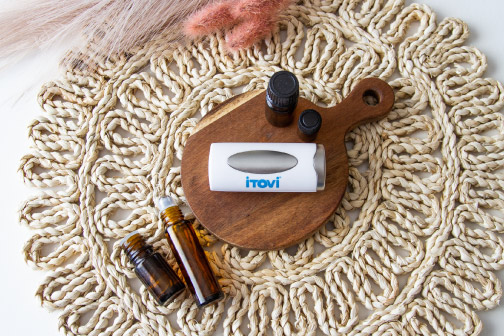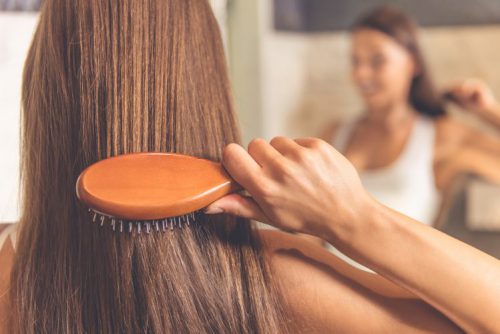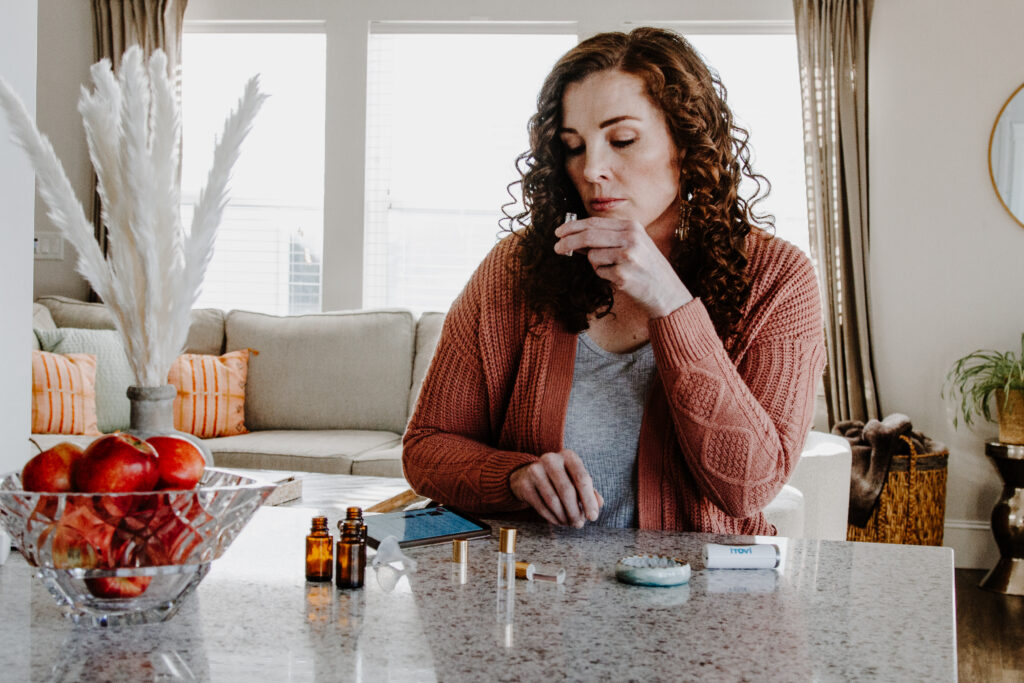
If essential oils had one best friend on the skincare shelf—it would definitely be the serum.
Serums are potent formulations. They are designed to carry more active ingredients than other kind of skincare solution, to penetrate down to the lower layers of the skin, and perform all kinds of actions.
Add to that the fact that your serum is likely to be the most expensive of your skincare products—and you can be sure that it pays to know 1) what you are doing with your serum, 2) how to pick the best serum for your skin, and 3) which oils are best to mix in!
Why Use a Serum?
Cleansers cleanse and moisturizers moisturize—so, do serums…serumize? Not quite.
As we said, serums contain the highest concentration of active ingredients of any skincare step. So they are meant to be hard hitters. But what they are meant to hit depends on the serum in question.
Some serums are formulated for the express purpose of fighting acne. Others focus on fading scars and dark spots. And some are built for wrinkle-reduction, boosting skin protection, enhanced moisturizing, and more!
So choosing a serum is all about what skincare issue or benefit you want to target.
The universal rule with serums, though, is that a little goes a long way. And, fortunately for our faces (and our wallets), a bottle of serum can go farther when it is chosen well and applied correctly.
What Kind of Serum is Good for My Skin Type?
| If you have… | You may favor a commercial serum with… | You may favor a homemade serum made with… |
| Dry/Aging Skin | Hyaluronic Acid
Vitamin E Niacinamide Glycolic acid Vitamin C |
Vitamin E Oil
Rosehip Oil Sweet Almond Oil Avocado Oil |
| Oily Skin | Retinol
Niacinamide Salicylic acid |
Grapeseed Oil
Apricot Kernel Oil Tamanu Oil |
| Normal/Combination Skin | Peptides
Glycolic Acid |
Sunflower Seed Oil
Jojoba Oil |
| Sensitive Skin | Vitamin C (in the form of Sodium Ascorbyl Phosphate rather than L-ascorbic acid) | Jojoba Oil
Vitamin E Oil |
| * Solutions with Hyaluronic acid and Vitamin C are recommended for all skin types. | ||
| Note: Serums can be a poor choice for those with chronic skin conditions like eczema or rosacea. | *Note: Popular ingredients for homemade serums also include: argan oil | |
How Do I Use A Serum?
A serum can only do its job fully if its active ingredients can sink in, past the outer layers of skin, and get to the deeper layers, where it can nourish, heal, and support your skin most effectively.
This is why it’s typically one of the last steps in a skincare routine.
Cleansing, exfoliating, and toning beforehand prepares the skin to take in the serum, by getting dirt, excess oil, and dead skin out of the way, as well as encouraging your pores to open up a bit so the serum can sink in!
How to Apply Your Serum
What you need to do is take a small volume of serum and gently massage it into your slightly wet face and neck.
If you are dealing with a foamy serum, two pumps of it should be enough. And if you are dealing with a thicker, lotion-y serum, use a pea-sized amount.
In either case, avoid getting any in your mouth, eyes, or nose, and be careful regarding the skin directly under your eyes.
Once the serum is massaged in, let it stand for five minutes before applying any moisturizer on top of it. And do not wash it off!
Can I Use Essential Oils in My Serum?
Some oils, yes. If you use them safely.
See our Blogpost: The Basics of Skin Care & Essential Oils for general safety considerations and read on to learn about essential oils in facial serums specifically.
Given that the essential oils in a serum will penetrate more deeply into your skin and will not get washed off—it is especially important to dilute them properly and otherwise be safe with essential oils in serums.
And, as ever, which is the best oil for your facial serum will depend on your skin’s needs and sensitivities.
To find the essential oils that work for YOU in a serum:
- Do your research
- Do patch tests
- Be willing, while still following safety protocols, to experiment.
To get you started, here is a breakdown of a few oils that are popular in serum solutions:
| Essential Oil | Pros | Cons |
| Helichrysum Oil |
|
|
| Bergamot |
|
|
| Rosemary Oil |
|
|
| Melissa Oil |
|
|
| Geranium Oil |
|
|
| Frankincense oil |
|
|
| Roman Chamomile |
|
|
| Rose |
|
|
| Ylang Ylang |
|
|
| Blue Tansy |
|
|
| Sandalwood |
|
|
| Learn more about specific essential oils, their benefits, contraindications, and more here. | ||
Conclusion
Serums may seem high-maintenance, but when used right, they give as good as they get!
Designed to nourish, heal, rejuvenate, and otherwise support skin—it’s nice to have a skincare product that focuses more on giving goodness to your skin rather than simply preventing or removing badness.
They ought to be used in a personalized manner and applied with caution and exactness—but the benefits they can deliver are well worth the hassle it takes to use them right!
If you liked this review on essential oils and facial serums, feel free to leave a comment below and check our other blog posts:
Essential Oils & Facial Cleansers
Essential Oils & Facial Exfoliation
Essential Oils & Facial Toners




